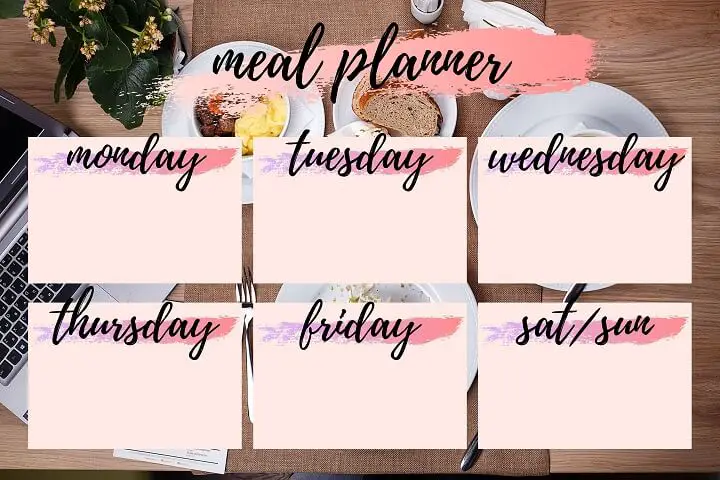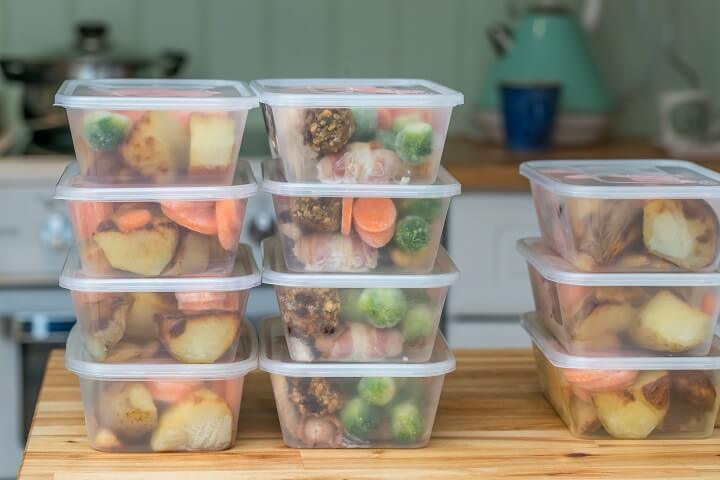Estimated reading time: 14 minutes
Being frugal and making resources count is an essential aspect of living on the homestead. Stretching and saving your resources are that much more critical during a recession.
While our world is in an economic downturn, the truth of the matter is that anyone can be in their own financial slump due to the loss of a job or sudden sickness. Being frugal is a beneficial skill that can be used throughout your life.
Want to save this post for later? Click Here to Pin It On Pinterest!
While the rest of the world may be in panic mode, it is best to remain calm about the situation. Homesteaders are usually well ahead of the curve when it comes to being prepared for a worldwide disaster. We typically have an emergency stockpile as well as knowledge of how to use the land to our advantage.
While we are often the most prepared neighbors, we are happy to share what we have learned to help you during this difficult time. Learn more about how to stretch and save resources during a recession with these tips…
How to Save Water
While you can go a few days without food, the body has a hard time surviving without clean water. Most residents connect to a public water system within a city or county.
While this resource is valuable, it doesn’t always mean that it will be available if worse comes to worst.
Water Storage
Having clean water on hand in the event of an emergency is vital for the health of your family. Stocking up on water bottles, gallons of water, or even large drums of water is a good idea just in case something happens.
In an emergency, experts recommend that you save one gallon of water per person per day to use for drinking or washing.
Conserving Water
During an economic downtime, it is probable that water will still be readily available in your area. However, there are ways to help minimize your water usage and keep your water bill low.
Teach Children Water Conservation Basics
Kids are often quick to waste resources because they don’t understand how important they are. Make sure to teach children to turn off the water while they brush their teeth or to take shorter showers.
Turning down the water flow while doing dishes is another easy way to conserve water with kids in the house.
Limit Bathing
While it was common to bathe once a week a few centuries ago, many of us take daily showers today. If you do take a regular shower or bath, consider limiting your bathing time to cut down on water consumption.

Bathing babies and small children daily probably aren’t needed as well. Limiting the amount of time you spend bathing can help reduce your water bill.
Water Only Necessary Plants
Many Americans feel that they need to water their lawns and gardens every day, and the truth is that you really don’t have to during a recession.
Most lawns only require a long drink about once a week. Watering your lawn more than that is an easy way to waste this precious resource. Some would also argue that yards are not necessary at all and can be left unwatered in an emergency situation.
We recommend only watering those outdoor plants that are directly beneficial. These would include gardens, orchards, and shade trees that offer respite from the heat in the summer.
While flowers are pretty, they aren’t necessarily going to help you in an emergency. Note weather patterns and allow nature to provide enough water for those plants that aren’t as important as others.
How to Stretch Food Costs
The ability to feed yourself and your family during a recession is a top priority. Food is often a significant expense and is one of the first areas that you can tackle to help cut down on costs during a recession.
Make a Budget
Feeding everyone in your household costs a lot of money. Creating a monthly food budget will help you keep track of your expenses and decide what items to buy at the grocery store.
While every budget is different, estimating what you spend on groceries is not enough. Set a limit of money to spend on groceries and make a commitment not to exceed it. A great way to do this is to use only cash at the store. Once the grocery money is gone, you’re done shopping.
Learn to Meal Plan
We all have grown tired of the question, “What’s for dinner?” Meal planning is a great way to answer this question. Many homesteaders plan their meals 1-4 weeks in advance to help divvy up the food budget.
There are many different ways to meal plan, but most include a calendar and a list of meals that the family eats on a regular basis.

Shop Around but Limit Grocery Trips
This tip may seem confusing, but stay with me here. A great way to reduce food costs is to check different grocery stores. You’ll rarely get the best deal by going to just one store for everything on your list.
You can limit your grocery trips by committing to a shopping day just once or twice a month. Block this day out on your calendar and commit to only getting groceries during these shopping days. Any extra trips that you make to the store will cost more money that may not be in your budget.
Watch Sales and Use Coupons
Many stores have digital coupons that they offer to customers through an app. Use these opportunities to save money on items that you usually buy at the store.
Cutting coupons from the paper is another option. However, be careful with any kind of coupon that requires you to buy more than you had planned. A “Buy 2 Get 1” coupon is only useful if you know you will use that item, and it is within your budget.
Another key tip is to watch stores for sales. Some low-cost leaders portray they are the cheapest option, but they sometimes are not. Shop those stores that have deals and regularly discount their prices. You may find that your normal store isn’t the cheapest option in town.
Shop Your Own Shelves
A great way to keep your grocery budget low is to shop your own shelves for items that you can put together to make a meal. Use items in the fridge that are going bad along with random items in the pantry to create a meal without having to go to the store.
Make it fun for the whole family and use your creativity to help lower your grocery bill and use up food that you already have on hand.
Stretch Meals by Making Leftovers
It is very easy to break the budget with lunches. Consider making a little bit more dinner the night before and saving the extras for lunch the next day.
Another option is to meal prep lunches for the entire week over the weekend. Doing so will help you stick to your budget and avoid eating out. Don’t let any leftovers go to waste!

Change Up Portions
Many Americans eat too many calories on a daily basis. Cutting down on portions will help you save money on food as well as keep your family healthy.
Boosting the fruit or vegetable serving for a meal will also help encourage healthier eating during a recession. Consider serving the vegetable first and then adding the protein and carbohydrate to the plate so that you always have room for healthy foods.
Buy Bulk to Save Big
While buying bulk isn’t always the best deal for every item, it usually is a good idea when purchasing dairy, milk, or protein. These items are all easy to store in the fridge or freezer and often are less costly when you buy them in bulk.
Consider buying a half of a pig or a quarter of a cow to stock up on meat for the freezer. Buying cheaper proteins like ground beef, pork, or chicken in bulk can be helpful in a recession.
Break up the bulk packaging at home to separate a few pounds of meat for each meal.
Produce Your Own Food
The two main ways to produce your own food are gardening and raising livestock.
Grow Your Own Veggies
Starting your own vegetable garden is a great way to stay healthy and limit your grocery bill. There are plenty of plants that reach maturity quickly in a garden.
Planting lettuce, radishes, and peas are all excellent options in the early spring months. Summer weather can help cucumbers, melons, tomatoes, and squash grow as well. Planting just a few varieties can help cut down on food costs.
Check out the gardening category on this site for more ideas.
Raise Some Chickens
Having your own flock of chickens is a great way to have a steady supply of both meat and eggs. Raising your own chickens couldn’t be easier as many cities now allow backyard flocks.
Purchasing a few mature hens can mean that you’ll have eggs the very next morning. Chickens don’t take up a lot of time or money and can forage themselves. They also love to pick through kitchen scraps and produce eggs without the need for a rooster.
Here's how to buy your first chickens, and check out the birds category on this site for more information.

Glean, Glean, Glean
Have you ever seen an apple tree that isn’t picked in the late fall? Or a blackberry bush with berries that rot on the vine? There are so many edible extras all around this nation that simply go to waste.
Homesteaders understand the importance of gleaning, which is the gathering of produce after a harvest. Gleaning is when you harvest food that has been forgotten. Sometimes this means apples that have fallen from a tree or a neighbor’s pear tree that hasn’t been picked.
Scout your area for these free food sources and always ask the owner before you pick!
Make Your Own Supplies
Many homesteaders enjoy making their own laundry and bar soap. Not only is it pretty easy to do, but you can make a lot of soap at just a fraction of the cost of store-bought options.
DIY air fresheners are also a common item that makes use of essential oils. Some homesteaders even make their own toothpaste using everyday ingredients like baking soda and peppermint essential oil.
You can also make your own cleaning supplies like kitchen cleaners and mopping solutions. Many of these natural cleaning options are much safer than store-bought cleaning supplies that contain added chemicals.
Here's a list of household items you should stop buying and start making.
How to Cut Clothing Costs
Another basic necessity is the need for clothing during a recession. Clothing is often crucial in colder climates when the weather is too cold to survive. However, these clothing tips are an excellent way for any of us to cut down on our clothing expenses this year.
Repair Worn Clothes
Mending holes, rips, or hems is a great way to prolong the use of a clothing item. Many of these clothes are perfectly fine and only need a little bit of thread.
Get into the habit of mending clothes before you decide to purchase new replacements. To do this, you'll need to learn the basics of sewing.
Take Old Clothes to Consignments
Many towns and cities have clothing consignment stores. Usually, these stores focus on children’s clothing as kids grow so fast. However, more and more adult consignment stores are popping up around the country.
Online consignment options like Thread Up or eBay are other ways that you can sell used clothes. Consignments are great to use as they offer payment in either cash or store credit.
Have a Yard Sale
Many of us have too much stuff in our homes as it is. Go through your closets and storage areas to sell items that you haven’t used in the past year. Yard sales are an easy way to make some extra cash as well as rid your home of clutter. Craigslist and eBay are other online options where you can list items for sale without sitting outside for a weekend.
When you aren’t having your own yard sale, shopping at other yard sales is a great way to find homestead items a fraction of retail cost!
Swap with Friends
Parents with young children often have friends with children. This means that there are a lot of clothes going around between all of those kids!
Consider swapping clothes with a family that has children in different sizes than your own. This is especially great for babies and young toddlers that grow out of their clothes quickly. Sharing outfits is a great way to save on clothing costs during a recession.
How to Save on Utilities
While we already discussed water consumption, there are plenty of other utilities to manage during a recession.
Heating and Cooling
Consider cutting down on both heating and cooling costs by adjusting your thermostat up or down a few degrees depending on the season. Doing so can make a huge difference in your overall heating and cooling bills.
During transitional periods, open the windows and keep the furnace off. Using a smart thermostat is another way to gauge your heating and cooling costs during a recession.

Utilizing a fireplace during cold seasons to heat the home is another way to add warmth without the use of the furnace. Ceiling fans help circulate air during warm seasons as well to help limit the need for air conditioning.
Here are some tips on how to lower your heating bill, and here's how to stay cool in the summer.
Reducing Power Usage
Power is a luxury that most of us would have trouble living without. Help your household cut down on electricity by limiting the number of lights that are on.
Teach children to turn off lights as they leave a room or consider installing motion sensors as well. Put outdoor lights on a timer and only turn on lights that you are using. Hanging clothing out to dry on a clothing line is another way to save energy.
Another way to cut down on energy consumption is to limit the use of electricity when it is dark outside. Harness natural light that comes into the home, but close and shutter the windows when the sun goes down.
Cutting Cable TV and Phone
Many households have gotten rid of their cable television and landline. The advancement of technology allows us to watch entertainment over the internet instead of needing a cable or satellite connection.
If you’re paying a lot for cable subscriptions or a phone that never rings, consider cutting them off this year to help save money.
Utilizing the Internet
Again, the internet has become crucial in today’s world. Our cell phones, televisions, and computers all use Wi-fi. Some appliances and speakers even use wi-fi. While faster internet is tempting, consider not upgrading your internet connection this year to help limit your utility costs during a recession.
Now is the time to consider adding these frugal ideas to help combat the current recession. All of these tips are items that have been tried by fellow homesteaders and can help decrease costs during a recession.
Make sure your family is well cared for with the basic necessities of life and consider implementing one or all of these frugal ideas to help stretch and save resources this year.
Like this post? Don't Forget to Pin It On Pinterest!











A few suggestions. Grow flowers with a duel purpose. Grow the edible flowers daylilies, violets, nastrums, sunflowers, hibiscus, lavender, pinks, borage, chamomile etc. They attract pollinators and are tasty.
We buy clothes from thrift stores. We go on days that offer discounts to military and in my case seniors. I often find brand new clothes with tags still on them for less than 5 dollars. I shop yard sales as well. I also like consignment shops. I recently got a sewing machine table for my machine with multiple drawers for storage 8.75 and it’s all wood made in the 40s. The only clothes we buy new is underwear and socks generally.